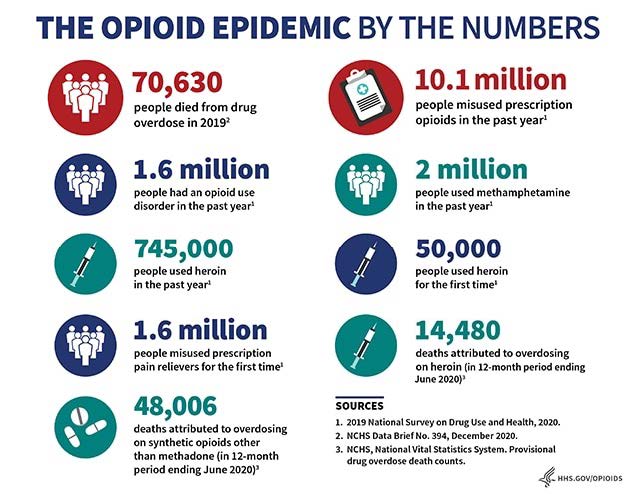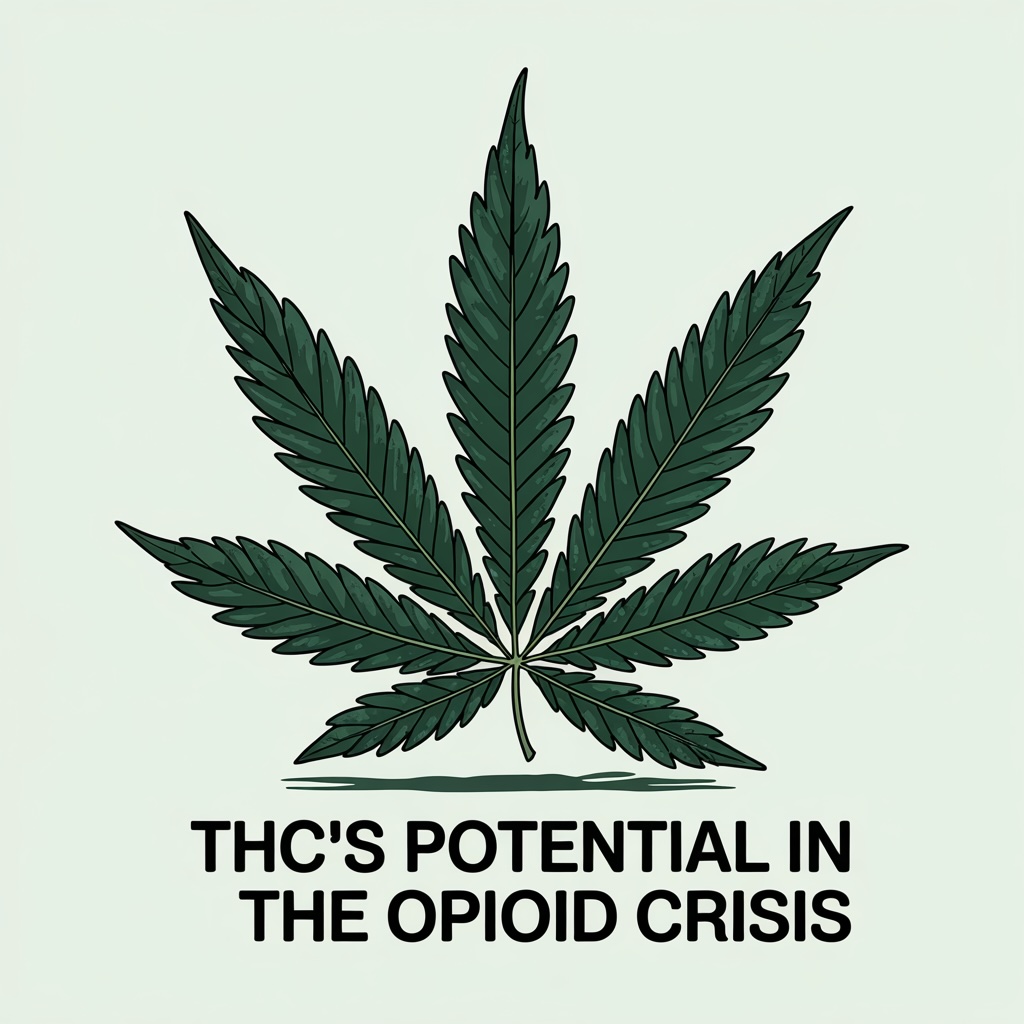THC emerges as a promising natural alternative in pain management, offering substantial benefits in reducing opioid addiction and enhancing quality of life.
Unmasking the Crisis
The opioid epidemic, a relentless scourge, has ravaged communities across the globe, claiming over 500,000 lives in the U.S. alone since 1999 and draining approximately $1.5 trillion from the economy each year. In this daunting context, THC (tetrahydrocannabinol), the primary psychoactive component of cannabis, emerges as a beacon of hope.
Offering not just pain relief but also a viable strategy for harm reduction, THC’s potential to alter the landscape of addiction treatment and pain management is immense. This exploration delves into how THC could revolutionize approaches to pain relief, diminish opioid addiction, and rectify systemic flaws in addiction care.
Understanding the Opioid Epidemic
Opioids alleviate pain by binding to receptors in the brain and spinal cord, interrupting pain signals and triggering dopamine release. Effective for acute pain, this process, however, paves the way for tolerance, dependence, addiction, and a high risk of overdose, contributing to nearly 50,000 American deaths annually by 2020.
The roots of the epidemic stretch back to the 1990s, driven by aggressive pharmaceutical marketing and lax prescribing practices that normalized the use of opioids for chronic pain. Despite tighter controls today, over 10 million Americans still misuse opioids each year, highlighting the critical need for sustainable, non-addictive pain management solutions.
The toll is not limited to mortality rates. The crisis strains healthcare systems, devastates families, and perpetuates poverty, particularly in hard-hit communities from Mesa to Scottsdale, where opioid-related emergencies and productivity losses are rampant.

THC: A Natural Solution
Unlike opioids, THC targets the endocannabinoid system, a complex network regulating pain, mood, and inflammation, without directly triggering the brain’s reward system. This subtler interaction offers pain relief with a significantly lower risk of dependence.
Empirical evidence supports THC’s effectiveness in managing various pain types, from neuropathic pain to arthritis. A pivotal 2015 study highlighted that cannabis users reported a 64% reduction in opioid use, emphasizing THC’s potential as a superior alternative.
Reducing Opioid Addiction with THC
In states with legalized medical cannabis, such as Arizona and California, opioid prescriptions have decreased by 6–8% annually. Clinics in Tempe report successful cases of patients substituting opioids with THC-rich cannabis, often reducing opioid use within months.
THC has proven effective in easing withdrawal symptoms like muscle aches and anxiety, facilitating smoother detox processes and reducing relapse rates. Beyond immediate pain management, THC significantly enhances mental health and overall quality of life, as evidenced by veterans in Colorado who report better sleep and reduced PTSD symptoms when using cannabis.
Studies such as those in the Journal of Pain and JAMA Internal Medicine corroborate substantial reductions in opioid usage and overdose deaths in cannabis-legal states, presenting THC as a game-changer in pain management strategies.
Effective THC usage starts with minimal dosages, adjusting as necessary. Various consumption methods, including edibles and tinctures, cater to diverse patient needs, emphasizing the importance of tailored therapeutic approaches.
Future Trajectories and Innovations
While 38 states have embraced medical cannabis, federal hurdles continue to impede broader adoption and research. Overcoming these challenges, coupled with public education to dispel cannabis-related stigma, is essential for wider acceptance and integration of THC in pain management.
Innovative THC formulations, such as transdermal patches and nano-emulsified oils, promise effective relief without psychoactive effects. International experiences, like Canada’s, illustrate the global potential of THC in revolutionizing pain management and harm reduction strategies.
THC offers more than just pain relief—it provides a sustainable pathway out of opioid addiction. With continued research, advocacy, and legislative progress, THC could fundamentally transform the public health approach to pain management. As we advance, embracing scientific insights and shedding outdated stigmas will be key to unlocking the full potential of THC as a pivotal tool in the fight against the opioid epidemic.

***
GreenPharms is more than just a dispensary. We are a family-owned and operated company that cultivates, processes, and sells high-quality cannabis products in Arizona. Whether you are looking for medical or recreational marijuana, we have something for everyone. From flower, edibles, concentrates, and topicals, to accessories, apparel, and education, we offer a wide range of marijuana strains, products and services to suit your needs and preferences. Our friendly and knowledgeable staff are always ready to assist you and answer any questions you may have. Visit our dispensaries in Mesa and Flagstaff, or shop online and get your order delivered to your door. At GreenPharms, we are cultivating a different kind of care.
Follow us on social media





